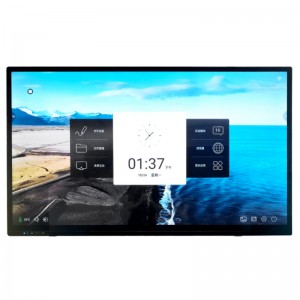65-inch Infrared Conference System with 4K UI and Touch Control
Product Features
● System
Equipped with Android 11 smart operating system and a unique 4K UI design; 4K ultra-HD is available for all interfaces.
4-core 64-bit high-performance CPU, Cortex-A55 architecture; Maximum support clock 1.8GHz
● Appearance and Intelligent Touch:
Super narrow border design of 3 equal sides of 12mm; matte material appearance.
Front-removable high-precision IR touch frame; touch accuracy reaches ±2mm; realizes 20 points touch with high sensitivity
Equipped with an OPS interface and expandable to dual systems.
Equipped with a digital audio output; front speaker and common interfaces.
Supports all channels touch, touch channels automatically switch and gesture recognition.
Intelligent control; remote control integrated computer shortcuts; intelligent eye protection; one-touch switch on/off.
● Whiteboard Writing:
4K whiteboard with 4K ultra-HD resolution for handwriting and fine strokes.
High-performance writing software; supports single-point and multipoint writing; adds brushstroke writing effects; supports whiteboard insertion of images, adding pages, gesture board-eraser, zooming in /out, roaming, scanning for sharing, and annotation in any channel and interface.
Whiteboard pages have infinite zooming, unrestricted undo and restore steps.
● Conference:
Built-in efficient meeting software such as WPS and welcome interface.
Built-in 2.4G/5G dual-band, dual-network card; supports WIFI and hotspots simultaneously
Supports wireless shared screen and multi-channel screen casting; realizes mirroring and remote snapshot, video, music, document sharing, picture screenshots, wireless encrypted remote casting, etc.
Specification
| Display Parameters | |
| Effective display area | 1428.48×803.52 (mm) |
| Display ratio | 16:9 |
| Brightness | 300cd/㎡ |
| Contrast Ratio | 1200:1 (customization accepted) |
| Color | 10bit true color(16.7M) |
| Backlight Unit | DLED |
| Max. viewing angle | 178° |
| Resolution | 3840 * 2160 |
| Unit Parameters | |
| Video system | PAL/SECAM |
| Audio format | DK/BG/I |
| Audio output power | 2X10W |
| Overall power | ≤250W |
| Standby power | ≤0.5W |
| Life cycle | 30000 Hours |
| Input power | 100-240V, 50/60Hz |
| Unit size | 1485(L)*887.58(H)*92.0(W)mm |
| 1485(L)*887.58(H)*126.6(W)mm(with brackets) | |
| Packaging size | 1626(L)*1060(H)*200(W)mm |
| Net weight | 38kg |
| Gross weight | 48kg |
| Working condition | Temp:0℃~50℃;Humidity:10%RH~80%RH; |
| Storage environment | Temp:-20℃~60℃;Humidity:10%RH~90%RH; |
| Input ports | Front ports:USB2.0*1;USB3.0*1;HDMI*1;USB Touch*1 |
| Rear ports:HDMI*2,USB*2,RS232*1,RJ45*1,
2 *Earphone terminals(black)
|
|
| Output ports | 1 Earphone terminal ;1*RCA connector;
1 *Earphone terminals(black) |
| WIFI | 2.4+5G, |
| Bluetooth | Compatible with 2.4G+5G+bluetooth |
| Android System Parameters | |
| CPU | Quad-core Cortex-A55 |
| GPU | ARM Mali-G52 MP2 (2EE),Main frequency reaches 1.8G |
| RAM | 4G |
| FLASH | 32G |
| Android version | Andriod11.0 |
| OSD language | Chinese/English |
| OPS PC Parameters | |
| CPU | I3/I5/I7 optional |
| RAM | 4G/8G/16G optional |
| Solid State Drives(SSD) | 128G/256G/512G optional |
| Operating system | window7 /window10 optional |
| Interface | Subjects to mainboard specs |
| WIFI | Supports 802.11 b/g/n |
| Touch Frame Parameters | |
| Type of sensing | IR recognition |
| Mounting method | Removable from the front with built-in IR |
| Sensing tool | Finger, writing pen, or other non-transparent object ≥ Ø8mm |
| Resolution | 32767*32767 |
| Communication Interface | USB 2.0 |
| Response time | ≤8 MS |
| Accuracy | ≤±2mm |
| Light resistance strength | 88K LUX |
| Touch points | 20 touch points |
| Number of touches | >60 million times in the same position |
| Supported system | WIN7, WIN8, WIN10, LINUX ,Android ,MAC |
| Camera Parameters | |
| Pixel | 800W;1200W;4800W optional |
| Image sensor | 1/2.8 inch CMOS |
| Lens | Fixed focal length lens, Effective focal length 4.11mm |
| Angle of View | Horizontal view 68.6°, Diagonal 76.1° |
| Main camera focus method | Fixed focus |
| Video output | MJPG YUY2 |
| Max. frame rate | 30 |
| Drive | Drive-free |
| Resolution | 3840 * 2160 |
| Microphone Parameters | |
| Type of microphone | Array microphone optional |
| Microphone array | 6 arrays;8 arrays optional |
| Responsiveness | 38db |
| Signal-to-noise ratio | 63db |
| Pickup distance | 8m |
| Sampling bits | 16/24bit |
| Sampling rate | 16kHz-48kHz |
| Drive | win10 drive-free |
| Echo cancellation | Supported |
| Accessories | |
| Remote controller | Qty:1pc |
| Power cable | Qty:1 pc, 1.8m (L) |
| Writing pen | Qty:1pc |
| Warranty card | Qty:1set |
| Certificate of Conformity | Qty:1set |
| Wall mount | Qty:1set |
Product Structure Diagram
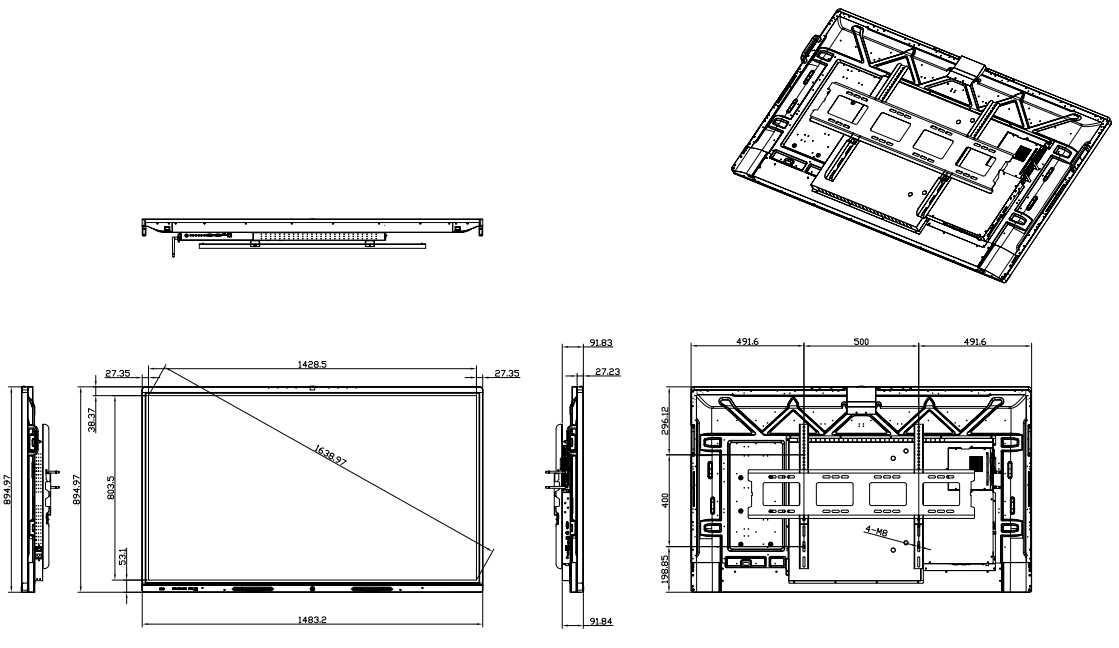
FAQ
Answer: Yes, there are rugged touch screen displays available that are designed to withstand extreme temperatures, vibrations, dust, and other harsh conditions commonly found in industrial settings.
Answer: Touch screen displays can incorporate privacy filters or anti-glare coatings to reduce viewing angles and protect sensitive information. Additionally, implementing secure software protocols and encryption can enhance data security.
Answer: Touch screen displays can be integrated with legacy systems and software, depending on their compatibility and the availability of appropriate drivers or interfaces.
Answer: The lifespan of a touch screen display depends on various factors, including the quality of the components, usage conditions, and maintenance. Generally, touch screen displays have a lifespan of several years or even over 10 years with proper care.
Answer: Yes, there are touch screen displays with high brightness and anti-glare features that ensure visibility even in direct sunlight, making them suitable for outdoor applications.
Here are some of the commonly used touch technologies in the industry. Each technology has its unique characteristics and advantages, catering to different application requirements. It's important to choose the right touch technology based on the intended use, environmental factors, and user preferences:
1. Capacitive Touch Technology: Capacitive touch technology uses the electrical properties of the human body to detect touch. It relies on the conductive properties of objects to register input. When a conductive object, such as a finger, comes into contact with the touch surface, it creates a disruption in the screen's electrostatic field, allowing the touch to be detected and registered.
2. Surface Acoustic Wave (SAW) Technology: SAW technology uses ultrasonic waves that are transmitted across the touch screen. When the screen is touched, a portion of the wave is absorbed, and the touch location is determined by analyzing the changes in the acoustic wave pattern. SAW technology offers high image clarity and durability.
3. Infrared (IR) Touch Technology: Infrared touch technology uses a grid of infrared light beams across the screen's surface. When an object touches the screen, it interrupts the infrared light beams, and the touch location is determined by analyzing the interruption pattern. IR technology provides high accuracy and reliability.
4. Optical Imaging Technology: Optical imaging technology uses cameras or sensors to capture the touch interactions on the screen. It detects changes in light or infrared patterns caused by touch and translates them into touch input. This technology offers excellent touch accuracy and can support multi-touch gestures.
5. Projected Capacitive (PCAP) Touch Technology: PCAP technology utilizes a grid of micro-fine wires embedded in the touch screen. When a conductive object touches the screen, it creates a change in the electrical field, and the touch location is detected by measuring these changes. PCAP technology provides excellent touch sensitivity, multi-touch support, and durability.





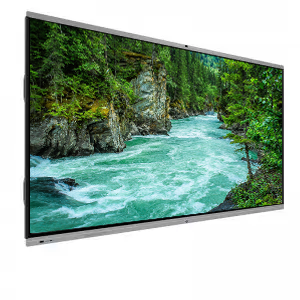
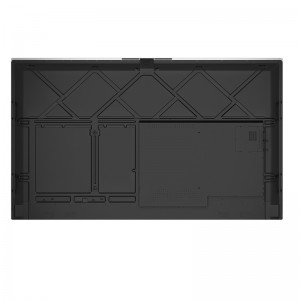
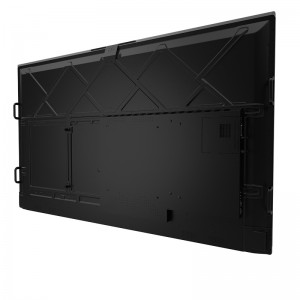
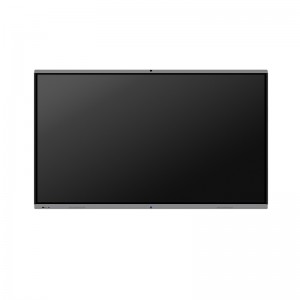
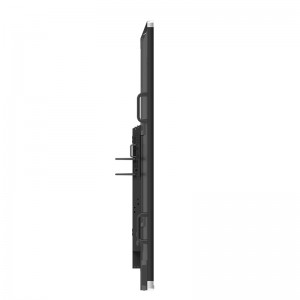
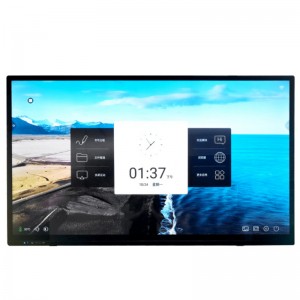
2.png)
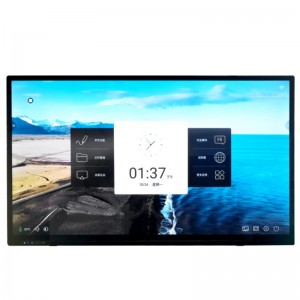
1.png)
